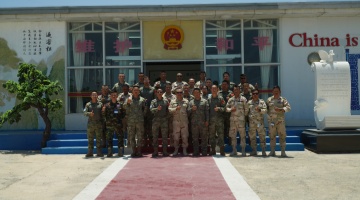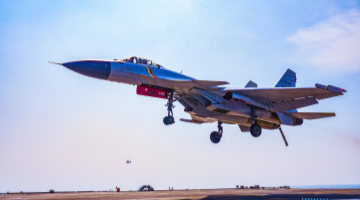By Pan Wanli
According to recent Japanese media reports, the Japanese government and the EU have agreed to launch negotiations soon on formally signing an information security agreement to enable the exchange of classified security-related intelligence. The two sides also plan to establish a dialogue mechanism to promote cooperation in the defense industry. In addition, during this year's Shangri-La Dialogue, the Japanese and French defense ministers confirmed their commitment to advancing negotiations on a Reciprocal Access Agreement and reached a consensus on enhancing cooperation in defense equipment. Japan's recent series of interactions with the EU, NATO, and their member states indicates that its security ties with external countries, particularly European countries, are deepening. Against the backdrop of mounting global economic and geopolitical uncertainty, Japan's continued push to expand its security footprint abroad raises an important question: What is Tokyo truly seeking through this intensified outreach?
Japan's increasingly close defense ties with NATO and the EU appear to reflect its ambition to achieve a military breakthrough and elevate itself into a major political and military power, which is widely viewed as being aimed at containing China. In recent years, Japan has repeatedly adjusted its security policies and steadily increased its defense budget. Since the outbreak of the Russia-Ukraine conflict, Japan has frequently hyped the notion that "Ukraine today may be East Asia tomorrow." In talks with NATO and European leaders, the Japanese side has consistently stressed that the security and prosperity of the Euro-Atlantic and "Indo-Pacific" are inseparable. This narrative is intended to justify Japan and NATO's efforts to break geographical constraints and expand their military influence. Japan's active participation in joint arms development projects with European countries also reflects its intention to enhance its independent capabilities in the defense industry. On the other hand, Japan has long regarded countering China as a key strategic objective of its foreign policy. Building on the Japan-US alliance, it has continued to deepen security cooperation with NATO, the world's largest military alliance, and developed a multilayered network of partnerships, including Japan-EU ties. This has become a crucial pillar of Japan's efforts to contain China.
From Tokyo's perspective, such a strategy may serve to align strategic resources and bolster its perceived ability to address external "security challenges." At this year's Shangri-La Dialogue, Japanese Defense Minister Gen Nakatani once again underscored the importance of cross-regional cooperation. He spoke positively of the growing engagement of European countries and NATO in the so-called Indo-Pacific region in recent years, asserting that the security of the Euro-Atlantic and "Indo-Pacific" regions is indivisible. He further stated that enhanced cooperation among countries that supposedly share common values and interests would contribute to regional peace and stability.
However, under the pretext of safeguarding regional peace and stability, Japan has willingly acted as a springboard for external forces to penetrate the Asia-Pacific and facilitated their strategic presence in the region. Such an action will only exacerbate geopolitical rivalries, undermine security and stability in the Asia-Pacific, and become a source of instability in the region. As a major country in Asia, Japan has, in fact, benefited from a stable regional environment. Amid rising global uncertainties and against the backdrop of US tariff coercion worldwide, Japan's attempts to exaggerate threats and create confrontation in the security domain will only lead to a dual predicament, undermining both its economic interests and its own security.
This year marks the 80th anniversary of the victory of the Chinese People's War of Resistance Against Japanese Aggression and the World Anti-Fascist War, an occasion of profound historical significance. At the 30th Nikkei Forum "Future of Asia," Shigeru Ishiba stated that Japan must remember the painful memory and lessons of history, so that it will not repeat past mistakes of war. Ishiba said that Japan has taken on a path of peace after the war, and this will not change in the future. By learning from history, Japan will not be an invasive country.
Japan should translate such statements into concrete actions, earnestly reflect on its history, and remain committed to the path of peaceful development. Only by doing so can it contribute meaningfully to regional stability and development.
(The author is an associate researcher of the Institute of Contemporary China Studies, the Chinese Academy of Social Sciences.)
Editor's Note: Originally published on huanqiu.com, this article is translated from Chinese into English and edited by the China Military Online. The information and opinions in this article do not necessarily reflect the views of eng.chinamil.com.cn.













